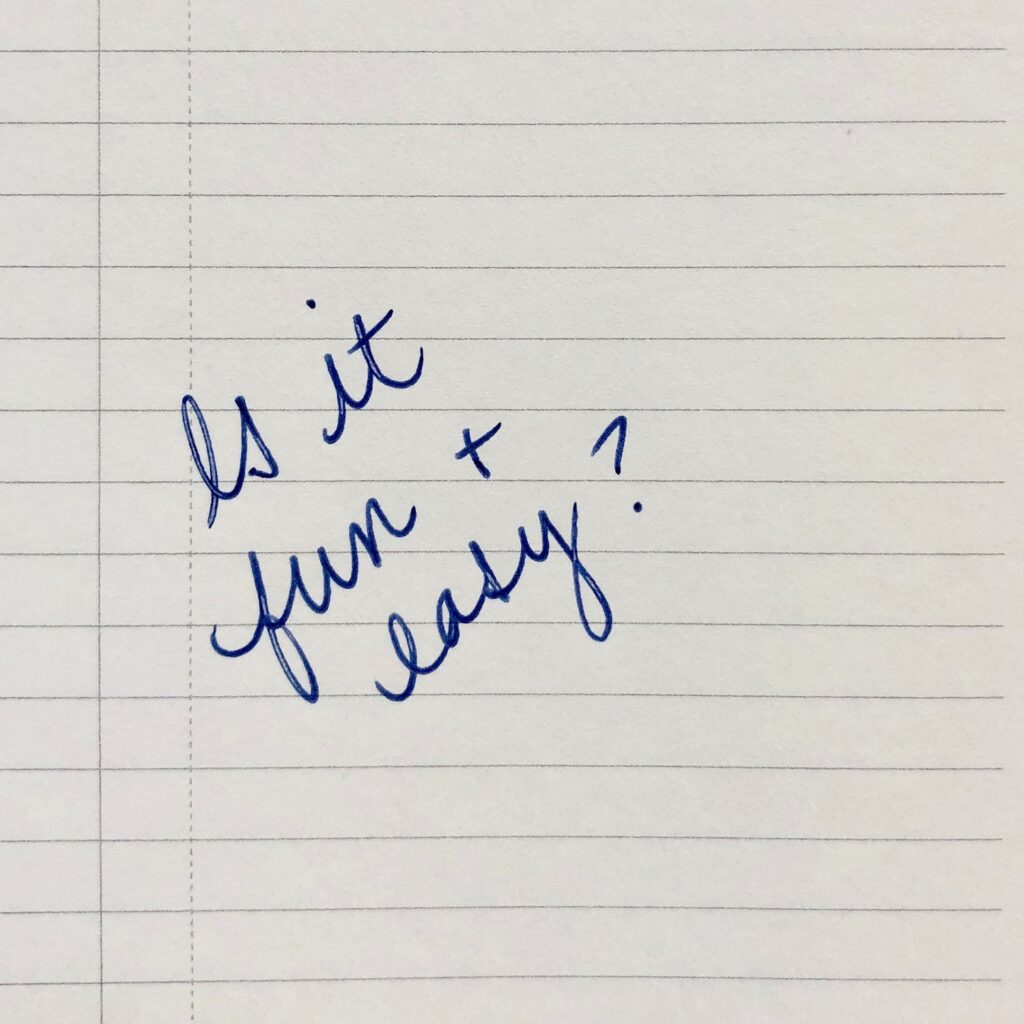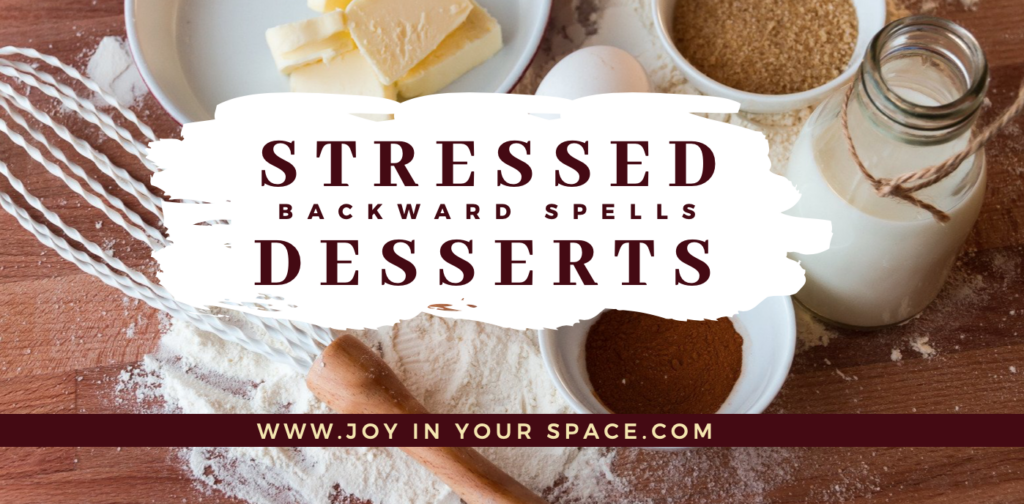Wishing is a good thing! It creates a vision of what we’d like for the future. Often the vision motivates us into action to make it come true. But the tricky part about a wish, compared to a goal, is sometimes we want our wish to magically happen without our taking action. Can you relate?
Here are some examples of Wishful Thinking that might be contributing to the clutter in your home:
The clothes you wish you could get into two or three sizes down.
The workout equipment you wish you would use.
The craft projects you wish you’d have to time to work on.
The second home you wish you could buy.
Charitable shops have been closed for some time due to the pandemic, and now that they’re opened, they are inundated with goods. Some people are reluctant to donate to charities for fear their items will be thrown in the trash. I’ve been told by Goodwill workers that they are storing items in trailers, however that statement is unverified. Another option for items you wish to sell or give away for free are websites like Freecycle.org and CraigsList.com, or local pages on Facebook Marketplace. Since summer is here, you can find ways exchange items with social distancing.
Wishful Thinking can be shifted to Realistic Thinking. If you have trouble getting started, consider the help of a professional organizer. Many are doing virtual organizing and can help you shift your thinking so letting go is easier. YOUR WISH FOR A CLUTTER-FREE HOME CAN COME TRUE!


About a year ago, I started asking myself a question that gave me dramatically more clarity (and joy!) in my work and life.
The question was:
Is it fun and easy?
Why did I start asking this question?
Because I was overwhelmed by the “shoulds.”
I have ALWAYS have been overwhelmed by those blasted shoulds, but I felt particularly overwhelmed as a new entrepreneur. Suddenly, I, alone, had to dictate how I would spend my precious time.
Being an entrepreneur can be incredibly freeing. But, there’s also no road map. No clear strategy. No “right” answers.
After a year of trying to do all of the “shoulds,” I signed up for an online course called 31 Days to Flow. I had learned about “flow” previously in my career, and I was intrigued about how I could apply it in this new phase.
Essentially, “flow” is a state where you feel totally in the zone. You don’t notice the time passing. You feel energized. You feel like you’re excelling at what you are doing or you’re seriously enjoying the process.
(Doesn’t that sound better than “should”??)
The course instructor asked us to spend almost two weeks identifying our core values. I was somewhat dismayed at this request since I had spent countless hours (days!) in my previous corporate and non-profit life identifying values. What?! Values?! But I signed up for flow!!
Alas, I really liked the course instructor, and I had paid for the darn class already, so I obliged.
The results ended up being one of the most game-changing exercises I have ever done.
After much soul-searching, ranking, debating and word-smithing, I came up with a list of 5 (soon to be 6) values that would become my new compass for EVERYTHING that I do – not just in work, but in life.
My values are (in order of importance):
These six simple words unlocked new wisdom about what I seek in life – in others, in my work, in my parenting, and so much more.
I could bore you for hours on the significance of each of these. So let me save you from that and instead offer a few examples. “Depth” alone explained why certain friendships filled me up, while others depleted me. “Quiet” explained why I turn into a crazed person from those hysterical Snickers commercials if I don’t have some quiet time in my day. “Beauty” came later, as an antidote to a world that often feels out-of-control.
Our instructor promised us that if we began to follow those things that aligned with our values, we would find more flow. More fun. More ease.
And so it was.
The question “Is it fun and easy?” became a shortcut to test if something “checked off my value boxes.”
I made some significant changes as a result.
By following the path of “fun and easy,” I have found more flow, ease, and joy. I’ve accepted the radical notion that I can follow what energizes me.
I know what you’re thinking. Not EVERYTHING can be fun and easy. So true, my friend. So true.
Luckily, for those things that aren’t fun and easy, we can often eliminate them, delegate them, or find creative ways to make them just a bit more joyful.
Starting today, how can YOU find more “fun & easy” in your work and life?
Yes. Virtual organizing has been around and effective for much longer than this recent COVID-19 quarantine. However, our current degrees of isolation are making virtual organizing more attractive than ever before to both organizers and those looking for organizing help.

Surprised? You might be. Yes organizers can, and often do, physically redesign your office or room layouts, remove your clutter and set up your files and spaces. Yet, the more important and valuable benefit of what they do (what you are really paying for) is what you don’t see. It is the things you experience when working with a professional organizer and the resulting benefits of those experiences.
Whether in-person or virtually in-person, a professional organizer is a pot of gold when it comes to processes, goal setting, motivation and innovation. Partnering with clients from deciding where to start, to trouble-shooting client-specific challenges, to supporting continued maintenance – an organizing and productivity specialist is the way to go.
If you have already worked with a professional organizer, start there! Contact them and ask them if they are running virtual sessions or, if not, ask if they would consider trying one with you. I recommend sticking with someone with whom you already have a good rapport.
Otherwise, the National Association of Productivity and Organizing professionals (NAPO) and it’s local chapters (here in the Philly area it is NAPO-GPC) are the places to start. NAPO professionals invest in their businesses, training and professional development to make sure they are bringing the best services to their clients. What’s even more exciting is that, since they will serve you virtually, you could choose an organizer from literally anywhere!
During this time of COVID-19, many of us are experiencing some degree of isolation and limitation in our lives. Some of us are eager to get back to an unrestricted lifestyle and others are cautiously waiting it out until stronger assurances are announced. Either way, the support of a professional organizer will help unravel difficult decisions, set up successful solutions and motivate you to stay on track. It is a service that you may decide works best for you even after the quarantines are lifted!

While we’ve been sheltering-in-place and social-distancing, I’ve been thinking about all the traveling I’ve done. Whether it’s a quick overnight or weekend trip or something longer, like 2 – 3 weeks, I’ve been remembering my wallet and how it gets filled with all sorts of paper not related to anything I needed to carry with me.
My wallet has been filled with receipts, ticket stubs, candy wrappers, etc. Were all these extraneous things necessary to stuff into my wallet? For me, this was the best place to keep all these items temporarily until I got home, when I could empty my wallet, file what I needed to keep in their respective “homes”, and discard the rest (I sure didn’t need to keep a candy wrapper). Do many of you have things like this in your wallet all the time?
How much you can fit in your wallet is really a metaphor for how much you can fit in your surroundings. Are you ready to “Empty Your Wallet” (and I don’t mean emptying it of money)? I’m talking about your wallet representing how light you would feel if you emptied your life of all the extraneous things that don’t need to be kept in it. What is actually important to you? What do you really need, not want, to keep in your life to make it seem less weighty? The 4 benefits of having an “empty wallet” are:
“Do not wait: the time will never be ‘just right’. Start where you stand, and work whatever tools you may have at your command and better tools will be found as you go along.” Napoleon Hill
Now is Your Time to “Empty Your Wallet”
First, we want to acknowledge that walking up to a perfect stranger and selling the idea of your business isn’t easy. Not everyone will be happy to see you and you need to be willing to expect and accept some rejection. The more you do it, the more comfortable you will feel, and when it starts to pay off and your calendar starts filling up, you’ll be plenty glad that you went for it!
Networking is a marathon, not a sprint.
People need to get to know and trust you before they will use your business or refer you to others. Show up consistently and you will be rewarded!
“Networking is an investment in your business. It takes time and when done correctly can yield great results for years to come.” – Diane Hilbig
THE FOLLOWING NETWORKING TIPS WILL COME IN HANDY:
Always set goals. Goals can be small; schedule 3 one-on-one meetings or get 10 email addresses, but always start your day with a purpose. This helps you hold yourself accountable and helps you track your improved networking skills!
Show genuine interest in other businesses. Be prepared with a list of questions to find out what their problem points are so you can craft the best message to address their needs. When you ask questions of other businesses, it shows you are interested in them and want to learn from them as well.
Give a little, get a little. Build allies and refer business to other members and they will be much more likely to return the favor.
Take notes. Promptly after a meeting, make note of who you spoke with, their position, any other names that were mentioned, personal information, and any interesting anecdotes they may have mentioned. These notes will be invaluable when you draft a follow up email and for future meetings.
Follow up! Never leave an office after a first meeting without setting up a one on one meeting for the near future.
Always wear branded clothing. This is free advertising that invites the question, “What is ___”?” You may be surprised by how much business can come from just walking around and showing off your company name.
No matter who you are meeting with, always be sure to travel with the following items:
• Business cards – always keep in your wallet and car.
• Brochures – keep some extra marketing folders and brochures specific to target industries available for that unexpected encounter with a potential referral partner.
• Giveaways – whether it’s sunglasses, pens, or magnets, branded items make a lasting impression; more so than business cards, and are visual reminders to use our service.
• A good attitude and a smile! – You are the face of your business. Impress everyone you meet with your cheery demeanor and your passion for the business, the environment, and your community.
While sheltering-in-place we’ve been spending a lot more time baking. And wouldn’t you know: Stressed Spelled Backwards is: Desserts!

I saw that catchy phrase after delivering my 5th batch of muffins in April. To avoid gaining the dreaded Covid-15 (think Freshman-15) I delivered Tupperwares to my neighbor, who appreciates my zero-sugar recipes.
With my last delivery of cranberry-sweetened pumpkin millet muffins, I wrote “sorry for dumping my stress-baked goodies on your doorstep.” She texted back “TY” with a link to “Stress-baking is a real thing!”
My 3 favorite therapeutic benefits to baking:
This “proof of progress” is where I want to focus.
I don’t know about you, but I am:
• losing a sense of what day it is
• not as productive as I was before Covid-19
• feeling less accomplished despite feeling almost as busy
So I reflected on the tools I used before Covid-19:
Here’s why I’m returning to these habits:

I can’t take credit for figuring out…stressed spelled backwards is desserts!